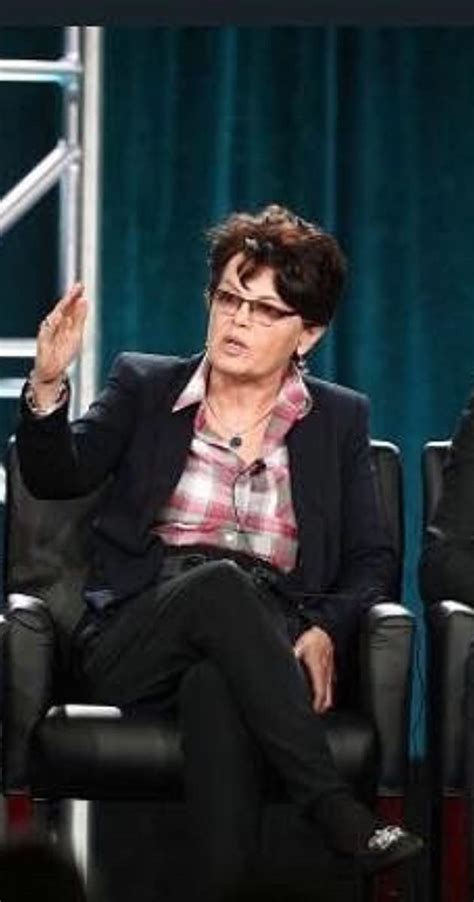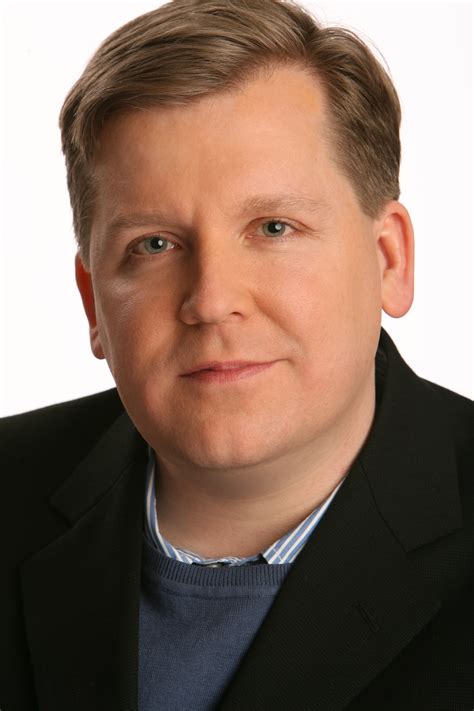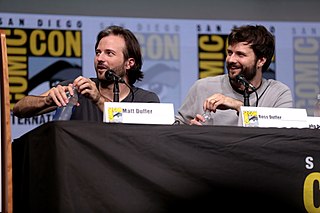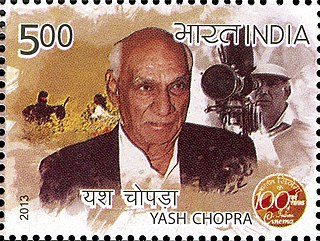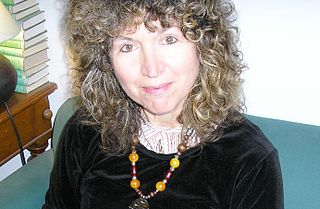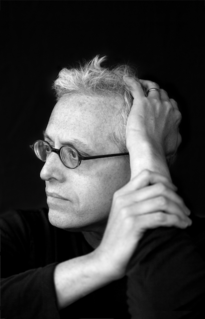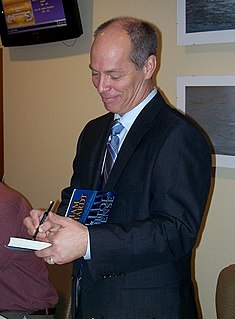Top 136 Screenwriting Quotes & Sayings - Page 3
Explore popular Screenwriting quotes.
Last updated on April 20, 2025.
I never learned to be a writer. I never took screenwriting courses. I never read anyone's scripts. As a writer, my only guiding principle has been to write about things that scare me, write about things that make me feel vulnerable, write about things that will expose my deepest fears, so that's how I write.
Screenwriting is a terrible way to make a living and I always try to talk anyone out of it. Until you sit in a story meeting with studio executives with no particular ability or actors who haven't even graduated high school telling you exactly how to change your script, you haven't experienced what it's really like to be a screenwriter in Hollywood. Also, unlike novelists and playwrights, you don't own the copyright on your original material. It hurts when you sell a project you love and then suddenly the project you really cared about will never see the light of day.
I'm a playwright by trade, and in theater, writers have complete control over everything. Nobody can change a word without your permission. I've had a couple screenwriting experiences that weren't terrible, but they were typical, where executives came in and gave you sometimes good notes and sometimes horrible notes - but they wanted to change the movie that everybody had agreed to make. After a couple of times, it's like, "Why are we doing this?" The story is not going to turn out very good when 13 people are writing it together.
I first came to cinema as a passionate filmgoer, when I was a child. Then, when I was a very young man, I became a film critic precisely because of my knowledge of cinema. I did better than others because of this. Then I moved on to screenwriting. I wrote a film with Sergio Leone, 'Once Upon a Time in the West.' And then I moved to directing.
The first thing our Chapman screenwriting professors taught us was that all stories share one thing in common: there is a protagonist, and that protagonist has a goal that he or she has difficulty achieving. Does Luke Skywalker become Luke Skywalker if he doesn't get pulled into the Death Star, if his best friend isn't turned into carbonite?
[on the reason for his seven-year hiatus in direction] My son Aditya made Mohabbatein, which took a lot of time and energy. Then we started looking for a script for me to direct. Nothing seemed to excite us both. There's a complete bankruptcy of screenwriting in our cinema. I wanted a very earthy and Indian subject. I was tired of the promos on television. With semi-clad girls, they all looked the same. Of course Dhoom has them too. But I'd personally not make a film like that.
I discovered John Truby ten years ago when a friend told me about his screenwriting course. I studied Truby's principles for a year and -- using them -- I wrote the first draft of The Thieves of Ostia in two weeks. I go back to his teachings before each new book I write. Each time I study Truby, I learn something new.
I've come to view screenwriting assignments as playwriting grants, because they provide a considerable financial cushion. However, they can also be extremely time-consuming. Film projects tend to drag on and on, which takes me away from the theatre, and then they don't get made. At the same time, the screenplays that have come my way have been quite challenging, for the most part, and even enjoyable.
I was about 14 when I started with a theater group; it was like a stage group on the weekends alongside school. And it was run by a group of guys who'd been to drama school themselves in London. So they introduced us to techniques that they'd learn about, and they kind of informed us about improvisation and screenwriting and all of that stuff.
All these teachers and [screenwriting] books mean you see movies that have been worked over by more committees wielding more rules, that all originality and authorship is lost. That's why you're seeing superstars like Brad Pitt in THE FIGHT CLUB and Tom Cruise in MAGNOLIA. They're desperately searching for people writing and directing off-formula movies.
Few literary depictions of the 1906 San Francisco earthquake match the intensity and visceral power of those in Flacco's gripping first novel. The author's screenwriting talent shines in this story of the earth's destructive power and humanity's moral depravity. The emerging maniacal personality, revealed in increasingly gruesome and venomous detail, rivals the Ripper.Dickens meets Hannibal Lecter. Brace yourself.
I learned that you really don't have any control as a writer. Waah, waah, waah. Big deal. Unless you're the director on the movie, or putting up the money for the movie, you really don't have a lot of control. As someone who's just writing scripts, you just kind of have to shrug. I have no problems or issues with screenwriting in general. It is what it is.
Screenwriting involves an often un-personal process. Co-writers, directors, producers, everyone has a say in what you put on a page, and stories are constantly changing according to budget, actors, and commercial needs. Films are a collaborative process and are also inherently narrative and structured, so you are always working within very tight parameters. Short fiction unleashes a more intimate voice and a passion for language. I believe short narratives can have the same amount of danger and drama as any action film.
I think I have always sort of cultivated a flowery writing style. I've always sort of over - written in every genre that I've attempted. I went to college and took a couple of writing classes and I remember my teachers were always incredibly encouraging. But it was inevitable to get the criticism: "Take it down a notch!" But the nice thing about screenwriting is that you don't really have to.
I've quit writing screenplay [adaptations]. It's too much work. I don't look at writing a novel as work, because I only have to please myself. I have a good time sitting here by myself, thinking up situations and characters, getting them to talk - it's so satisfying. But screenwriting's different. You might think you're writing for yourself, but there are too many other people to please.
When you're writing a script you have the option to embellish on life or switch the order of events or make it generally more cinematic. I would stick too closely to my own experience and not necessarily think about the fact that it needs to have an event happen. Realising that I could channel my own experience into a story that was slightly more cinematic was a very important moment for me - allowing myself to accept that the kind of screenwriting I'm doing is a work of fiction.

